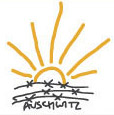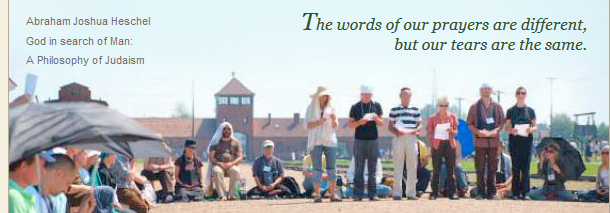September 24, 2018
Mercy Day
 Dzien Dobry and greetings from Oswiecim (Auschwitz) Poland. Before I came here I had forgotten that Mercy had a presence in the Crimea 1854-1856. Eastern Poland borders the Ukraine and present day Crimea is a republic governed by the laws of the Ukraine. So Mercy already has a documented story from this part of the world where the Sisters nursed the wounded soldiers.
Dzien Dobry and greetings from Oswiecim (Auschwitz) Poland. Before I came here I had forgotten that Mercy had a presence in the Crimea 1854-1856. Eastern Poland borders the Ukraine and present day Crimea is a republic governed by the laws of the Ukraine. So Mercy already has a documented story from this part of the world where the Sisters nursed the wounded soldiers.
The Centre for Dialogue and Prayer where I live and work is a welcoming place with a peaceful friendly atmosphere and excellent reasonable accommodation. This is particularly helpful to people wishing to have time for reflection, prayer, sharing, thinking and questioning following their visit to Auschwitz 1 and Birkenau camps. The Centre is enhanced by an interior environment that is aesthetically beautiful and comfortable. This role is fulfilled by the director of the Centre, Jan Novak, a Polish priest from the diocese of Krakow. The Centre receives guests from all over the world and all religions and many of them tell me my ‘English’ is very good!
Some people have asked me how it is possible to live here. Very simply this is 2009 and not 1943. To live here is to live in the present not the past, but the memory and history of the past are always honoured. So far my experience has taught me that it is impossible to live here knowing only the facts. At the same time it is impossible to live here without the facts. So what is it that enables me to stay in this landscape where there was unimaginable death and cruelty? I have no tangible answer to this. What I do believe is that in the events of our lives God’s guiding hand is always there and so I believe my presence here is not by chance. Each day however teaches me how little I know and I doubt if I will ever understand how all of this could have happened.

Within the Centre and through the life, work and witness of Manfred Deselaers a German priest from the diocese of Aachen, a particular way of encountering the memory of Auschwitz has slowly developed. This encounter studies and respects the past historical reality of Auschwitz from its many perspectives and roots this memory in a commitment to create “after Auschwitz” a civilization of love. Working out of this vision and within this sustaining environment I am part of a small team in the Centre that is available to plan programmes for groups and individuals. Retreats, seminars, interreligious conferences, publications and exhibitions are also organized.
The following short account gives a glimpse of our approach and hopefully a feeling for the mission of the Centre for Dialogue and Prayer which is located “at the threshold of Auschwitz.”
Everything begins here with silence and listening. The Polish expression listen to the voice of this earth was the guideline I received during my first week. In this place the voices of the victims somehow talk to us. We listen to these voices but it is difficult to understand them. I will never forget the tiny white baby shoe I saw on my first visit to Auschwitz1 and hearing the little voice saying “come.” Being here is profound and moving. But we don’t see anybody dying, there are no graves, we don’t see anybody starving, we don’t feel the atmosphere of horror and terror, nobody is beaten or killed any more thank God. To get an awareness of the invisible is very difficult and yet it is the most important task in the work of memory and it is becoming increasingly important to me.
It is very hard to imagine what it meant for a prisoner to be in Auschwitz. The testimonies we have from survivors tell their story because they feel an obligation to do this. And even when I meet and listen to survivors and feel their stories deeply I know I will never be a survivor and I will never really understand what Auschwitz was like for them. I will always understand only a little. To learn to understand the enormity of the story takes time and continues to be a gradual process for me. The survivors were all prisoners of the camp. Most of the victims never were prisoners because the vast majority of the victims came in a train, went to the gas chambers and there is no trace left of them. For more than one million Jews transported here, about two hundred thousand became prisoners in the camp because they had to work before they died. What it means is that almost one million Jewish people disappeared. This is beyond our comprehension but it is the most important issue. They were just gassed, burnt, and their ashes thrown away. The enormity of this is an ever present reality for me. Auschwitz for Jewish memory is first of all therefore a big hole where the Jewish world disappeared. A minority of Jews were prisoners in the camp, all of the Polish victims (75,000) were prisoners in the camp and all of the Sinti Roma (23,000) were at first prisoners in the camp.
Another dimension is listening to the voice of our hearts. In the Centre we try to create a place where reflection is possible and where the environment is conducive to silence or a shared conversation with others about what happened. It is important to have time to feel how we are connected to the story and to try and understand the overall truth and implications for our own lives. So we need to be silent and to listen: where would I have been at that time and how would I have reacted, on which side would I have been, what would have been my hope or despair and so on. And what does it mean for me today, where is my hope, despair, my values and my faith? This reflection will always be very personal and individual. That is why groups and individuals coming here very often need time alone.
To have time for ourselves, for silence and listening is also a step before Dialogue. First we must know the story and reflect on what it means for ourselves before we are able to dialogue. Dialogue is not always organized in a formal way though there are occasionally formal dialogue events. The fact that the Centre is a place where everyone is welcomed and hopefully listened to, a place where everyone can be with their own perspective and roots and where everyone is respected, is the opposite to what was out there - destruction of relationships, the killing of people and an atmosphere of terror. Creating first of all a space of trust is what we call the entrance room to dialogue. In an organized dialogue event it is easier after this to listen to one another and some guidelines are suggested: Everyone talks about himself/herself and listens to the other, and not one about the other. Because we are all very different and almost all are wounded it is something like an encounter of wounded people. But if you touch the wound there can often be an emotional reaction. It is better to be silent and not to say anything, not to touch the wound directly but to empower life around the wound. Sometimes you say more by saying nothing. But it is not about running away from the wound.

Another dimension is silence and listening to God. Although the Centre is called the Centre for Dialogue and Prayer very often we do not begin with either dialogue or prayer. Everything begins with silence and listening. We can then encounter the question: Where was God? And God’s question to us: Where were you? Where are you today? In Auschwitz there are testimonies of faith and testimonies of people who lost their faith. We also encounter the painful history of Christian Jewish relationships and the question of responsibility. The challenge for us here is an examination of conscience on the one hand and confession of faith on the other. I am challenged to say and reflect on what I really believe in and where my responsibility is today. That some Christians and Jews could find ways to pray during those terrible years is a call to acknowledge that God was here, is here, and we can do nothing less than pray as well. Today there is a Carmelite Convent close to the Centre. The daily prayer of the nuns is a source of strength for me and many others.
Very slowly I am absorbing these many dimensions and questions. It is a journey into the truth where fragility and vulnerability are felt. But it is also a place where there are amazing sunsets and sunrises and these too are internalized. Here in the Centre as we approach the end of 2009 we now dream new plans for the future, a future filled with life, hope and shalom so that the last word “after Auschwitz” no longer belongs to the power of evil and death but to the power of Love.
I invite you to come. Perhaps you might even consider making your retreat here and organize a group to come with you. You could include some time in Krakow which is only sixty kilometres away. There will be a Mercy welcome with a nice cup of tea waiting for you!
For more information see www.cdim.pl
Messages to Mary O'Sullivan rsm